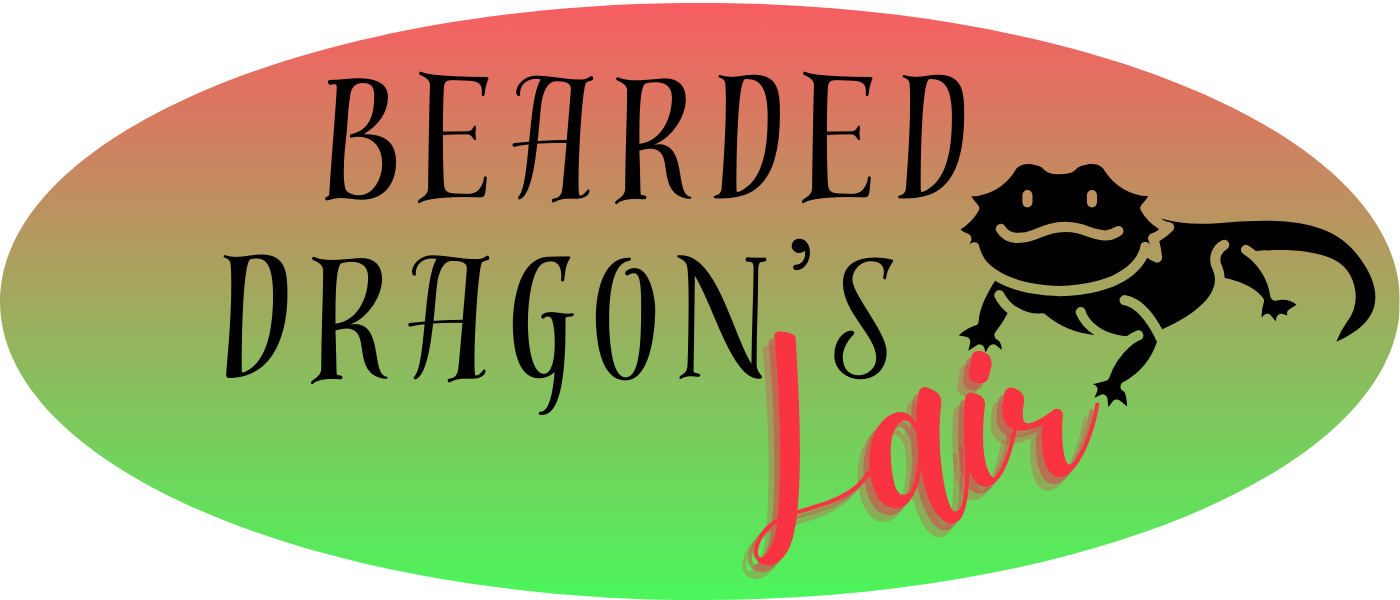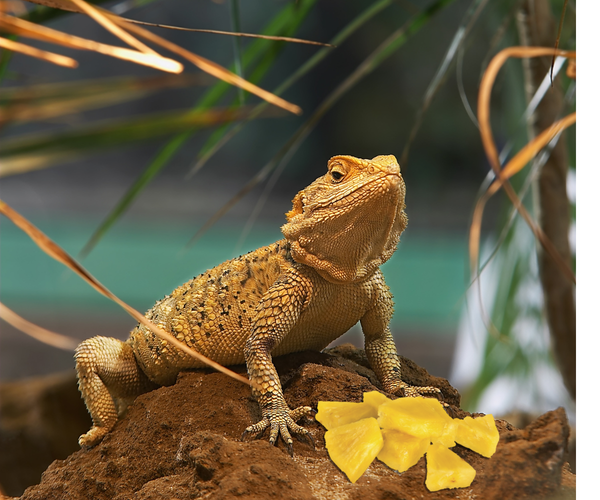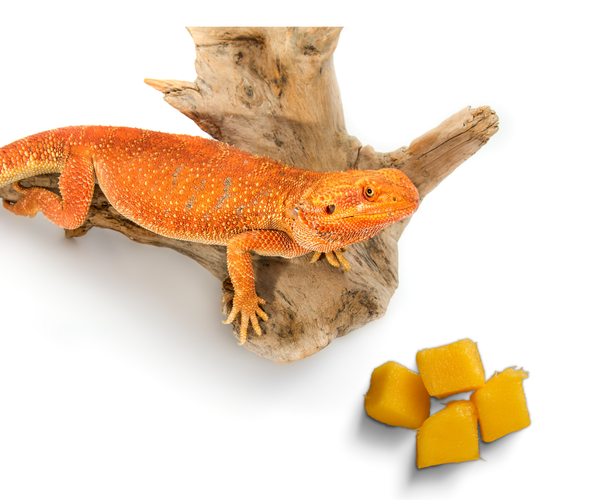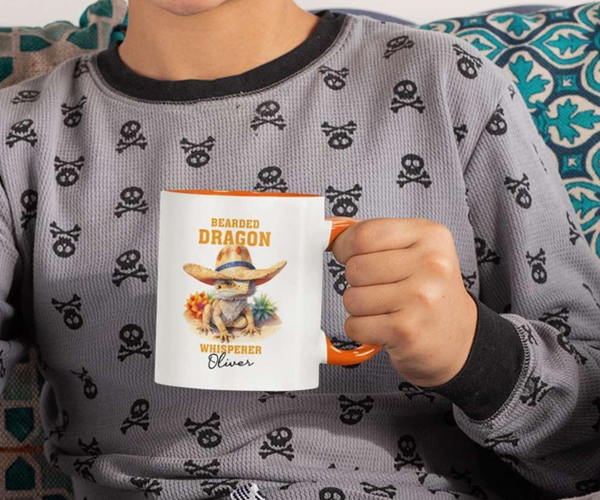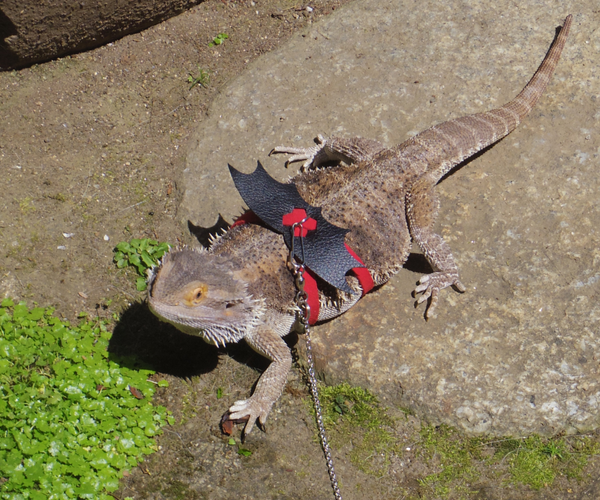Can Bearded Dragons Eat Cucumbers?
This article will delve into the suitability of cucumbers in a bearded dragon's diet, providing all the information you need to ensure your pet stays healthy and happy.
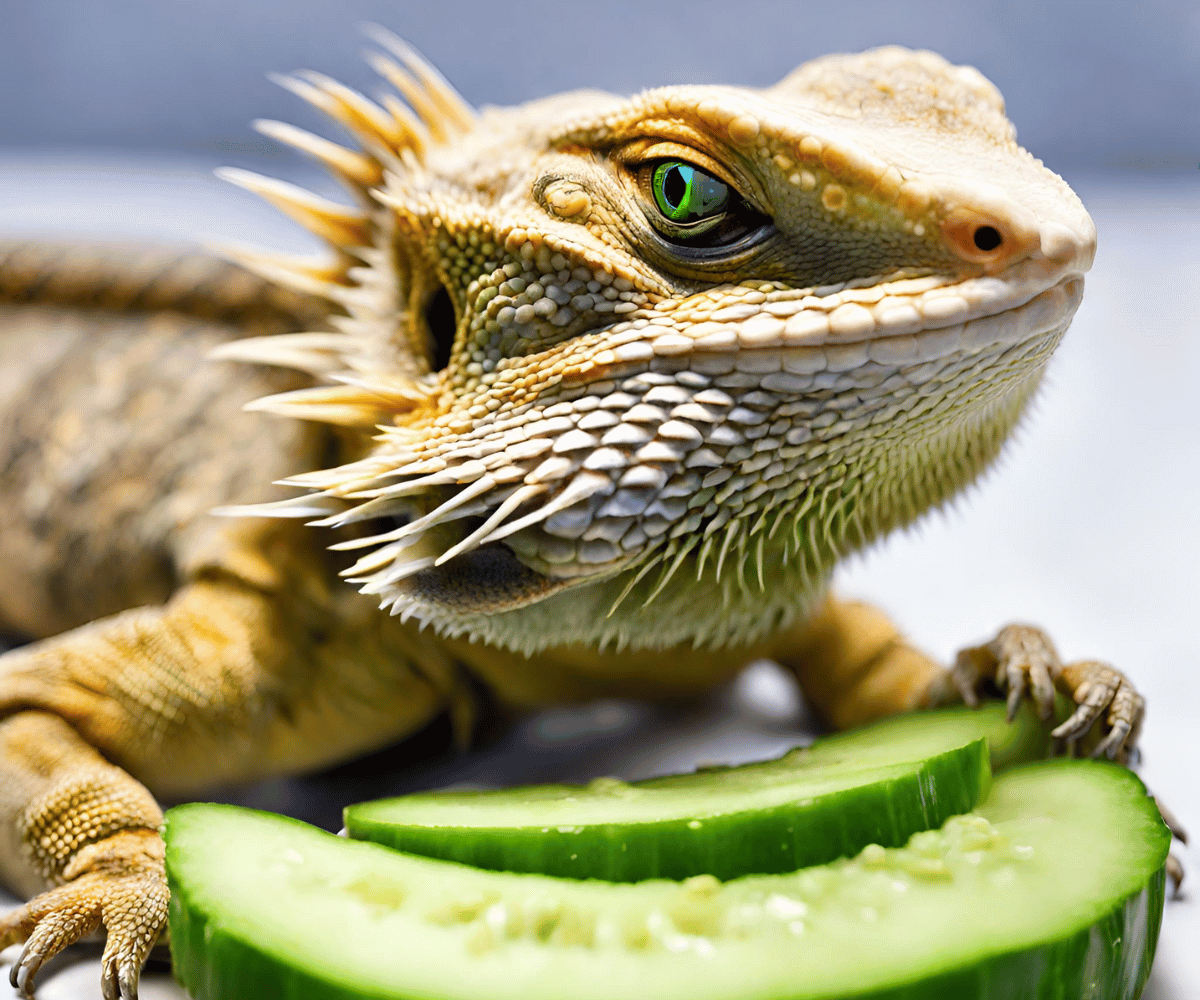
Bearded dragons are popular pets known for their docile nature and unique appearance. As a bearded dragon owner, it's crucial to understand the dietary needs of your scaly friend. One common question that arises is whether bearded dragons can eat cucumbers. This article will delve into the suitability of cucumbers in a bearded dragon's diet, providing all the information you need to ensure your pet stays healthy and happy.
Key Takeaways:
- Cucumbers can be a hydrating snack for bearded dragons but should be offered in moderation.
- It's important to balance cucumbers with other nutrient-rich foods in a bearded dragon's diet.
- Proper preparation of cucumbers is essential to avoid any potential health issues for your bearded dragon.
Understanding a Bearded Dragon's Diet
Bearded dragons are omnivores, which means they enjoy a varied diet of both plant-based and animal-based foods. In the wild, their diet consists of insects, greens, fruits, and occasionally small rodents. Captivity diets aim to mimic this natural feeding pattern to maintain optimal health. While vegetables and fruits should form a part of their diet, it's crucial to know which ones are safe and beneficial for them.
The Role of Vegetables and Fruits
Vegetables and fruits are important in a bearded dragon's diet as they provide essential vitamins and minerals. However, not all fruits and vegetables are created equal when it comes to their nutritional value for bearded dragons. Some may offer more water content, while others are richer in vitamins or fiber. The key is to provide a balanced mix that caters to all of their dietary needs.
Can Bearded Dragons Eat Cucumbers?
Yes, bearded dragons can eat cucumbers, but there are some considerations to keep in mind. Cucumbers are high in water content, which can be beneficial for hydration, especially during hot weather or if your bearded dragon isn't drinking enough water. However, cucumbers are low in nutritional value compared to other vegetables, so they should only be a small part of the diet.
Nutritional Content of Cucumbers
Cucumbers are mostly water, but they also contain some vitamins and minerals, such as vitamin K, potassium, and magnesium. They are low in calories and have a small amount of dietary fiber. While these nutrients are good, cucumbers lack the comprehensive nutritional profile that bearded dragons require for a balanced diet.
How to Prepare Cucumbers for Bearded Dragons
When feeding cucumbers to your bearded dragon, it's important to wash them thoroughly to remove any pesticides or chemicals. Organic cucumbers are a safer choice if available. Peel the cucumbers to eliminate any hard-to-digest skin and cut them into small, manageable pieces to prevent choking.
Frequency and Portion Size
Cucumbers should be offered to bearded dragons in moderation due to their high water content and low nutritional value. A small portion of cucumber can be included in their diet once or twice a week as a treat. It's essential to monitor your bearded dragon's reaction to cucumbers and adjust the frequency and portion size accordingly.
Balancing Cucumbers with Other Foods
To ensure your bearded dragon gets all the necessary nutrients, cucumbers should be part of a diet that includes a variety of vegetables, fruits, and insects. Leafy greens like collard greens, turnip greens, and mustard greens are excellent staples. Fruits should be given sparingly due to their sugar content, and insects should be the primary source of protein.
Potential Risks of Feeding Cucumbers
While cucumbers are generally safe for bearded dragons, there are potential risks to consider. The high water content can lead to diarrhea if fed in excess. Additionally, cucumbers have a low calcium-to-phosphorus ratio, which is not ideal for bearded dragons. A diet too high in phosphorus can hinder calcium absorption, leading to metabolic bone disease.
Hydration and Its Importance
Hydration is vital for bearded dragons, and cucumbers can play a role in maintaining proper hydration levels. Signs of dehydration in bearded dragons include sunken eyes, lethargy, and wrinkled skin. Offering cucumbers can help prevent dehydration, but they should not replace a bearded dragon's regular water intake.
Alternatives to Cucumbers
If you're looking for alternatives to cucumbers that offer higher nutritional value, consider vegetables like bell peppers, zucchini, and squash. These can provide more vitamins and minerals while still contributing to hydration. Always research or consult a veterinarian before introducing new foods into your bearded dragon's diet.
Monitoring Your Bearded Dragon's Health
Observing your bearded dragon's behavior and physical condition after eating cucumbers can provide insights into how well they tolerate this food. Healthy stools, active behavior, and a good appetite are signs that your bearded dragon's diet, including cucumbers, is on the right track. Regular check-ups with a vet specializing in reptiles are also recommended.
Expert Opinions and Recommendations
Veterinarians and reptile nutritionists often recommend a varied diet for bearded dragons to ensure they receive all necessary nutrients. While cucumbers can be included, they emphasize the importance of a diet rich in leafy greens and appropriate insects. Always seek professional advice if you're unsure about your bearded dragon's dietary needs.
Summary
Cucumbers can be a hydrating and refreshing treat for bearded dragons when offered in moderation. They should be properly prepared and peeled, served in small pieces, and balanced with other nutrient-rich foods. Monitoring your pet's health and consulting with experts can help you provide the best diet for your bearded dragon's well-being.
FAQ Section
Q: How often can I feed my bearded dragon cucumbers? A: Cucumbers should be fed to bearded dragons in moderation, ideally once or twice a week as part of a balanced diet.
Q: Do I need to peel cucumbers before feeding them to my bearded dragon? A: Yes, it's recommended to peel cucumbers to remove any potential pesticides and to make them easier for your bearded dragon to digest.
Q: Can cucumbers replace water for my bearded dragon's hydration needs? A: No, cucumbers should not replace regular water intake. They can supplement hydration but should not be the sole source of water for your bearded dragon.
